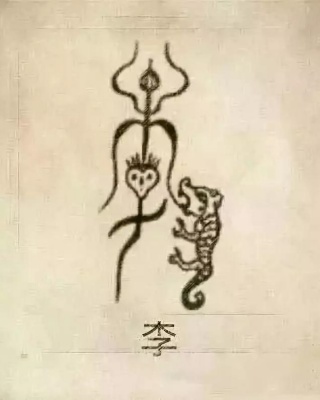Introduction
The Li surname ( lǐ) is not only the most common family name in China but also one of its most storied. Carrying over 3,000 years of history, it embodies the rise and fall of dynasties, poetic genius, and scientific innovation. For global readers curious about Chinese heritage, the Li lineage offers a captivating journey through philosophy, governance, and cultural evolution. Let’s unravel its origins, legendary figures, and enduring influence.

Origins: From Ancient Judges to Imperial Dynasties
The Li surname emerged from multiple historical roots, reflecting China’s complex social and political tapestry:
The Legalists of Yao’s Court
Key Figure: Gao Yao, legendary judge under Emperor Yao .
Origin Story: Descendants of Gao Yao, who served as the "Grand Judge" (Dàlǐ), adopted "Li" as their surname. The character combines " tree" and "child" , symbolizing resilience and growth.
The Phoenix of Longxi
Key Figure: Li Er (Laozi), founder of Taoism.
Origin Story: This branch flourished in Gansu Province during the Zhou Dynasty. Laozi, born Li Er, wrote the Tao Te Ching, shaping East Asian philosophy. His teachings influenced everything from Zen Buddhism to Silicon Valley leadership principles.
Imperial Adoption
During the Tang Dynasty (618–907 CE), emperors granted the Li surname to loyal generals and foreign allies, expanding its reach across Eurasia. This practice turned Li into a symbol of prestige, much like European royal surnames.
History’s Spotlight: Li Luminaries Who Changed the World
From emperors to Nobel laureates, the Li legacy spans disciplines and eras:
Li Shimin (599–649 CE): Tang Emperor Taizong, whose "Reign of Zhenguan" pioneered merit-based governance. His policies inspired the Silk Road’s golden age.
Li Bai (701–762 CE): China’s "Immortal Poet," whose verses about moonlit rivers and friendship are quoted in UNESCO heritage sites.
Li Qingzhao (1084–1155 CE): Revolutionary female poet of the Song Dynasty, celebrated for blending personal emotion with political commentary.
Lee Kuan Yew (1923–2015): Founding father of modern Singapore, whose governance model blended Confucianism with Western pragmatism.
Li Zhengdao (Tsung-Dao Lee): Nobel Prize-winning physicist who disproved the "Law of Parity," reshaping quantum mechanics.
Cultural DNA: Philosophy, Innovation, and Global Kinship
The Li surname’s influence transcends time and borders:
Taoist Wisdom for Modern Life
Laozi’s teachings—"A journey of a thousand miles begins with a single step"—resonate in mindfulness apps like Calm. The Li-family-compiled Dao Zang (Taoist Canon) remains a UNESCO Memory of the World register artifact.
Architectural Heritage
The Tang Dynasty’s Daming Palace in Xi’an, commissioned by Li emperors, showcased China’s first urban planning innovations.
Hong Kong’s Lee Ancestral Hall in Ping Shan features "dragon walls" symbolizing imperial authority blended with Lingnan craftsmanship.
A Diaspora of Trailblazers
Bruce Lee : Martial arts icon who revolutionized global cinema.
Li Ka-shing: Billionaire philanthropist shaping Asia’s tech infrastructure.
Ang Lee : Oscar-winning director bridging Eastern and Western storytelling.
Modern Distribution
Over 100 million people bear the Li surname worldwide. Major clusters include Henan Province (birthplace of Laozi), Guangdong, and overseas communities in San Francisco, Vancouver, and Kuala Lumpur.
Why the Li Legacy Matters Today
The Li surname isn’t just about ancestry—it’s a living philosophy. From Laozi’s harmony-with-nature principles to Tsung-Dao Lee’s quantum breakthroughs, this lineage demonstrates how tradition fuels innovation.
Did You Know?
The Li clan’s genetic marker (O-F3323) is shared by 1 in 10 Chinese men, making it a key focus for 23andMe’s East Asian ancestry research.